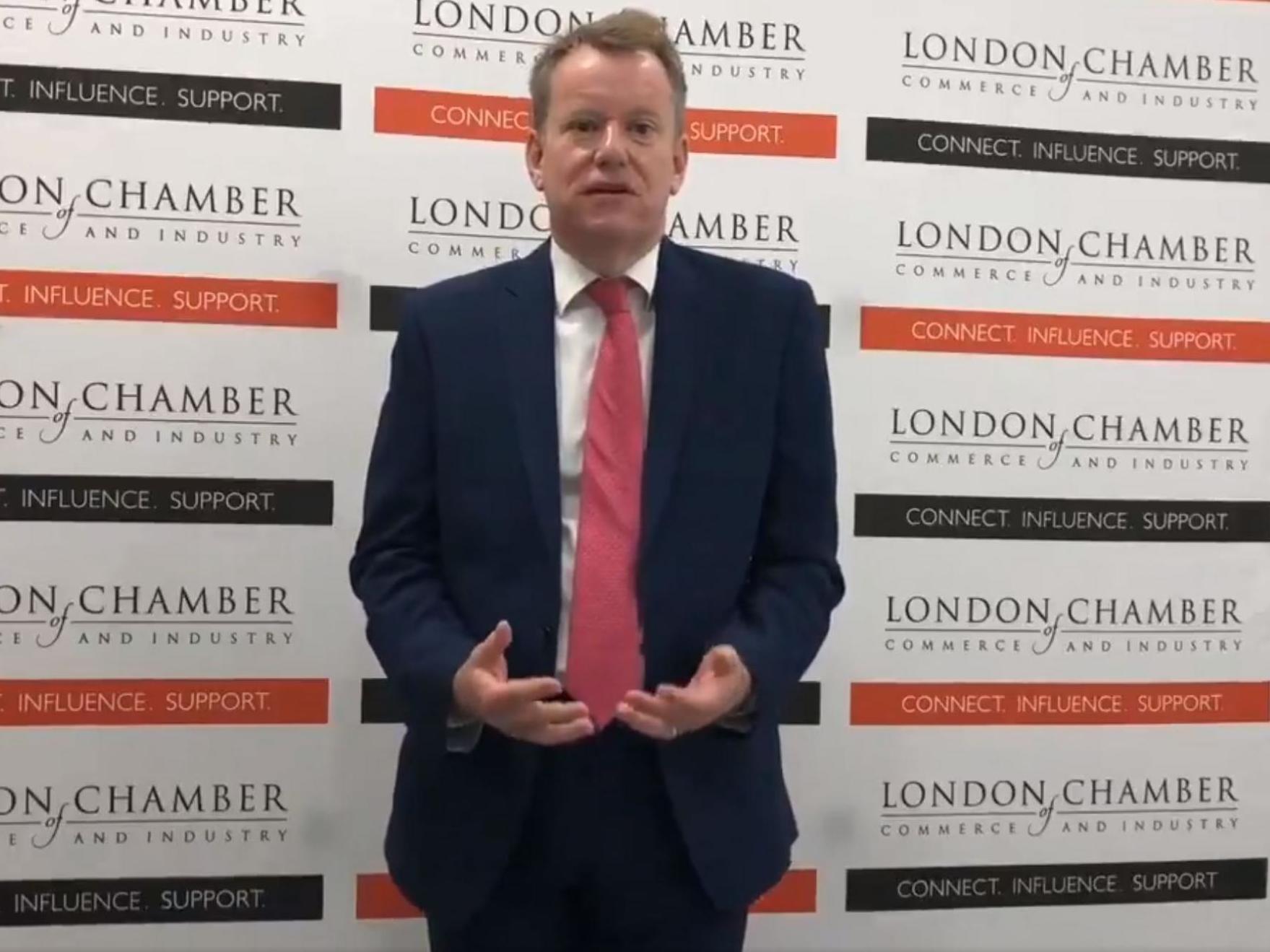Boris Johnson’s new Brexit chief wants to scrap Theresa May’s commitment on workers’ rights
Exclusive: David Frost suggested Brexit could be an opportunity to escape the EU’s ‘heavy labour market regulation’
Boris Johnson’s new Brexit chief wants to scrap Theresa May’s commitment to protect British workers’ rights, and has suggested Brexit is an opportunity to escape the EU’s “heavy labour market regulation”, The Independent can reveal.
Just two months ago David Frost said he was opposed to the approach advocated “by the leaders of both major political parties”, and argued that EU rights should not automatically be written into law after Brexit.
Mr Frost, former chief executive of the London Chamber of Commerce and Industry, was appointed last week by Mr Johnson to replace Olly Robbins as Downing Street’s EU chief, a role that will see him leading any future talks with Brussels.
“Business organisations have often in the past criticised the EU’s drift towards heavy labour market regulation,” Mr Frost said in May 2019 in an article reproduced on the London Chamber of Commerce and Industry website.
“So I will take some persuading it will be a good outcome if the EU is able to set new UK labour market rules without any UK say – as currently seems to be envisaged by the leaders of both major political parties.”
Theresa May committed the government to maintaining the current level of European Union workers rights, and also went even further, legislating for parliament to automatically be given votes on staying aligned with the bloc’s rules when future legislation emerges. The “dynamic alignment” plans were unveiled by the government in a failed bid to get Labour MPs to back the withdrawal agreement.
Additionally, during the transition period included in the withdrawal agreement, the UK would have to accept rights with no say at all, as rejected by Mr Frost.
Brussels has also suggested the UK would have to stay aligned with future EU workers’ rights, as well as environmental and social legislation, past the end of the transition period – if it wants a trade agreement. Chief negotiator Michel Barnier has said the bloc would seek non-regression clauses to ensure Britain does not backslide on rules and try to undercut its neighbours.
Commenting on the official’s views, TUC general secretary Frances O’Grady said: “Boris Johnson claims that he intends to enhance rights at work after Brexit. He and his advisers should be focused on delivering that promise.
“But instead they’re threatening a catastrophic no deal, which would strip away existing legal protections and leave essential rights open to attack. Working people must not be dragged off this cliff edge without getting a Final Say.”

A UK government spokesperson said: “The UK has a world-leading record in protecting workers’ rights, setting the highest standard, and a labour market we can be proud of, with more people in work than ever before. We are determined to maintain this record of leadership after we leave the EU, with or without a deal.”
In an email to EU member state diplomats revealed on Monday, the new Downing Street EU adviser, a former diplomat who has worked in Brussels, warned that they should not “underestimate” his new boss Mr Johnson.
In his first contact with his counterparts after taking the job, he told them that EU governments should “be in no doubt” about the new administration’s commitment to leaving the EU on 31 October.
Business organisations have often in the past criticised the EU’s drift towards heavy labour market regulation
“I will save the substantive issues for another day, other than to note Prime Minister Johnson’s statement in parliament [last week], which sets out our approach, and to underline that you should be in no doubt about this government’s commitment to the 31 October date,” he said in an email to member state diplomats. “I would also add that many people are inclined to underestimate Boris Johnson, and I would urge you not to do so.”
Mr Frost also hailed his predecessor, who he said “deserved better” than the personal criticism he had received in the press.
“I would like to conclude with a tribute to Olly. It is obvious that this new government does not take the same view as its predecessor on Brexit policy, but that should not detract from the fact that he has worked tirelessly over the last three years to implement the mandate he was given and has come in for quite a lot of personal criticism as result,” he wrote in the email, which was sent last week.
“He has deserved better, and I know that Prime Minister Johnson appreciates his service and wishes him well for what comes next.”
Mr Robbins came to be disliked by some Brexiteers, who considered the civil servant to be working to frustrate Brexit. Criticism came to a head after he was overheard in a hotel bar in Brussels outlining parts of the government’s strategy to get its withdrawal agreement through the House of Commons.
Speaking in the Commons last week, the new prime minister, Mr Johnson, said he would not conduct any further Brexit talks with the European Union unless it agreed to drop the controversial Irish border backstop from the withdrawal agreement. The EU has responded by saying it would stand by the policy and that it is prepared for a no-deal Brexit.
In the Commons on Thursday, Mr Johnson told MPs that workers’ rights would “not only” be protected after Brexit but that with “the freedoms that we will obtain” the UK would “where necessary be able to enhance” protections.
Join our commenting forum
Join thought-provoking conversations, follow other Independent readers and see their replies
Comments
Bookmark popover
Removed from bookmarks